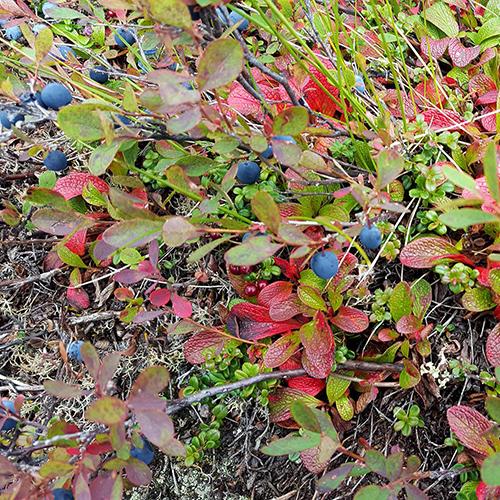
Credit: Photo courtesy of the UA Museum of the North
University of Alaska Fairbanks researchers have linked specific chemical signatures found in human hair with a diet of traditional Yup’ik foods. The finding could help scientists make connections between diet and long-term health trends in Alaska Native populations.
The study was published this month in the Journal of Nutrition.
The researchers examined the diets of 68 residents in two Southwest Alaska coastal villages. Each resident participated in four extensive dietary interviews and provided hair samples. Scientists analyzed the samples at specific locations along each strand of hair for the ratio between different nitrogen isotopes, which is a potential chemical signal, or biomarker, of diet.
Researchers were able to strongly establish a connection between the biomarker and the consumption of traditional foods like fish and marine mammals. Changes in the biomarker along the hair strand also showed that traditional food intake peaked during the summer months.
The consumption of many traditional foods increases the presence of heavier nitrogen isotopes in the hair, because those isotopes are more abundant in animals that are higher in the food web, such as marine mammals and fish. Scientists have established that general relationship before, but the new results will allow them to more closely pinpoint the amount of traditional foods in a person’s diet, said senior author Diane O’Brien, a researcher at UAF’s Center for Alaska Native Health Research.
“This study lets us put a number on it – in other words, it lets us translate a biomarker measurement to a specific percent of the diet from traditional foods,” O’Brien said. “It seemed to be a very good reflection of all the traditional foods people were eating, even foods like berries and greens that do not have high nitrogen isotope ratios. This is likely because people who consume a lot of traditional foods tend to consume all of them, not just certain ones.”
These data are important to scientists because the consumption of traditional foods in Alaska Native diets has been associated with a reduced risk of chronic disease.
Combining the use of biomarkers and surveys provides a more accurate way to measure what people are eating, allowing scientists to better make connections between diet and health. Using biomarkers is relatively cheap and easy, O’Brien said, and is a tool that doesn’t rely heavily on people’s recollections of their diets.
“Our diets are very complicated, and most of us don’t really don’t pay close attention to what we eat,” she said. “Because of that, there can be a lot of error in dietary data, making it hard to conclusively demonstrate links between diet and health. Having this biomarker gives us a lot more power to demonstrate how traditional foods relate to health in Alaska Native populations.”
###
The full Journal of Nutrition paper is available online at http://bit.
The research was funded by the National Institutes of Health grants that established the Center for Alaska Native Health Research. The UAF Alaska Stable Isotope Facility conducted the biomarker analyses.
Media Contact
Jeff Richardson
[email protected]
Original Source
http://bit.




